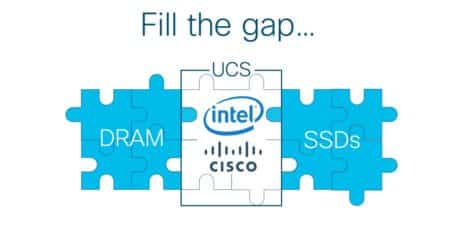
Cisco has announced that their UCS servers are now updated with 2nd Generation Intel Xeon Scalable processors. Servers now include higher top-end frequencies, Intel Optane DC persistent memory with 128GB, 256GB, and 512GB module capacities, support for 256GB DIMMs DDR4 2933-MHz memory, hardware mitigations for several side-channel attacks and Intel Speed Select Technology.

Cisco indicates the following modes for UCS servers:
- Memory mode, where lower-cost, higher-capacity Intel Optane DC persistent memory modules are paired with DDR4 DIMMs to lower costs. For example, users now have two options to increase per-socket memory to 3 TB: 12x 256GB DDR4 DIMMs, or the more cost-effective option of 6x DDR4 DIMMs + 6x 512GB Intel Optane DC persistent memory modules.
- App Direct mode, where the Intel Optane DC persistent memory modules are used as low-latency, high-speed persistent memory for data or storage attached directly to the CPU instead of the PCIe bus. Each CPU can have up to 1.5 TB of DDR4 memory and up to 3 TB of App Direct memory/storage. This allows application developers to customize their code to make the best use of each memory type.
With UCS Manager, users can dynamically define how Intel Optane DC persistent memory is used (i.e., Memory mode, App direct mode, or both) as well as how much capacity is configured for each.
Cisco adds that their Intersight technology makes them the only vendor to have a single management platform for all server types, such as B-Series blades, C-Series rack and multinode servers, S-Series dense storage servers, and HyperFlex hyperconverged servers. Intersight, a software-as-a-service management platform that leverages analytics to deliver proactive automation and support, can help reduce costs significantly as well as promote faster time-to-resolution.
Sign up for the StorageReview newsletter
